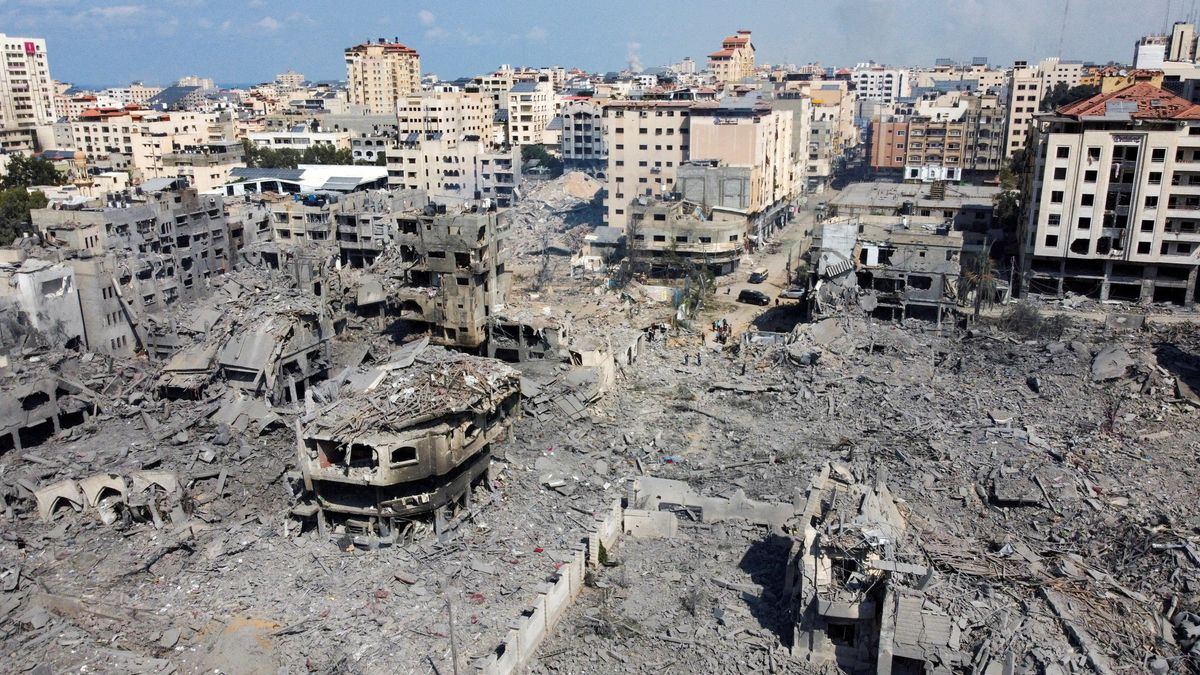The EU's decision on Palestinian aid
Spain and other concerned nations called for an emergency meeting of EU foreign ministers on Tuesday to discuss the issue of Palestinian aid.

A few minutes every morning is all you need.
Stay up to date on the world's Headlines and Human Stories. It's fun, it's factual, it's fluff-free.
The backstory: Over the weekend, Gaza militants, often referred to as Hamas, launched a significant attack on Israel. This was one of the biggest breaches of Israeli territory in half a century. They fired rockets into southern Israel and broke through blockades. In response, Israel carried out airstrikes on Gaza, causing casualties of Palestinian civilians and damaging infrastructure. Since then, there have been over 1,500 deaths, and there are reports of over 100 people kidnapped.
The US is backing Israel by providing weapons, while Saudi Arabia is calling for de-escalating the situation. In the West Bank, protests erupted, leading to Palestinian casualties. Israel has officially declared war on Hamas, pledging to eliminate their hideouts. But, the blockade continues to restrict Palestinians' ability to leave the conflict zone.
More recently: The EU, known for its humanitarian efforts, faced a dilemma. On Monday, EU Commissioner Oliver Varhelyi said on social media that there would be an immediate suspension of payments in the €691 million (US$730 million) Palestinian development aid program. But it seems he overstepped a bit with this announcement. Another commissioner, Janez Lenarcic, said that humanitarian aid would continue without interruption. Several member-states were surprised by the announcement, upset that they hadn’t been consulted.
UN Secretary-General Antonio Guterres had a talk with European Council President Charles Michel, expressing deep concern over the situation, and Michel said that the decision couldn’t be made without member-state support, according to an EU official. They also clarified that the EU’s aid to Palestine is meant for those civilians who reject Hamas. A few hours later, the EU seemed to backpedal from the statement, saying the aid would be under review.
Spain's second deputy prime minister, Yolanda Diaz, criticized the suspension of aid, saying it was a departure from Europe's founding principles. In response to the rising tension, Spain and other concerned nations called for an emergency meeting of EU foreign ministers on Tuesday to discuss the issue of Palestinian aid. France had already said it didn’t support suspending aid, and Ireland reaffirmed its commitment to providing humanitarian assistance to Palestinian civilians
The development: On Tuesday, the EU made it clear that there wouldn’t be any suspension to aid for Palestinian civilians, with chief diplomat Josep Borrell saying the “overwhelming majority” of member states were in favor of continued support. He also said the EU would be able to review the funding to ensure that none of it was benefiting Hamas and only went to support Palestinian civilians.
On the other hand, Denmark and Sweden both announced they would be suspending their independent aid programs to Palestine, with Denmark saying it would thoroughly review the program to make sure none of the funding went to terrorist organizations.
Borrell also said on Tuesday that some of Israel’s moves since the attack have broken international law. For example, Israel’s decision to cut of water, electricity and other supplies to the whole of Gaza is against the law, according to Borrell.
Key comments:
"The scale of terror and brutality against Israel and its people is a turning point," said Oliver Varhelyi, the European Commissioner for Neighbourhood and Enlargement, in a post on social media. "There can be no business as usual."
"Our understanding is that there is no legal basis for a unilateral decision of this kind by an individual Commissioner and we do not support a suspension of aid," said a spokesperson for Ireland's foreign ministry.
“In this emergency situation, we are once again scrutinizing not only our development cooperation but also our humanitarian assistance, in close consultation with the United Nations,” said German foreign minister Annalena Baerbock. “We agree, however, that it would be quite wrong at this point in time to halt vital humanitarian assistance for the civilian population. Millions of people, including many children, in the Palestinian territories depend on us for the provision of food, water and medicines.”
“Israel has the right to defend [itself], but it has to be done accordingly with international law, humanitarian law, and some decisions are contrary to international law,” Josep Borrell said after a meeting of EU foreign affairs ministers in Muscat. “Some of the actions – and the United Nations has already said that – [such] as cutting water, cutting electricity, cutting food to a mass of civilian people is against international law.”
“The whole region is at a tipping point. The violence must stop. My message to all sides is unequivocal: the laws of war must be upheld,” said the UN humanitarian chief Martin Griffiths. “Those held captive must be treated humanely. Hostages must be released without delay. Throughout hostilities, civilians and civilian infrastructure must be protected. Civilians must be allowed to leave for safer areas.




Comments ()